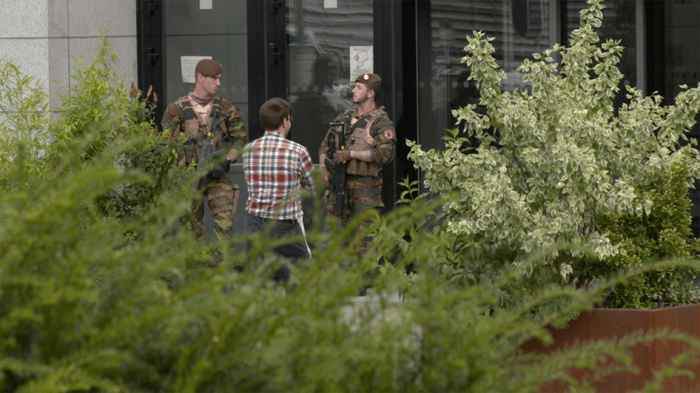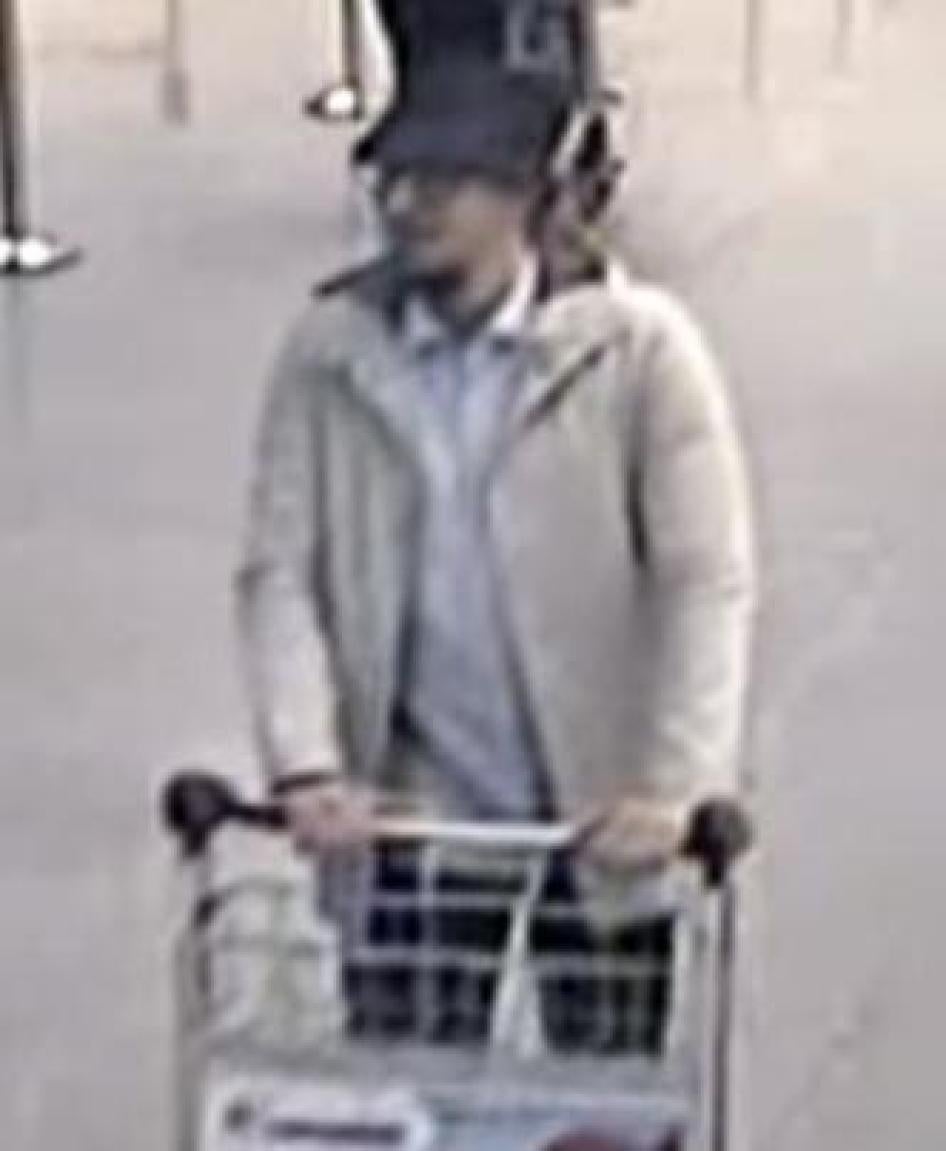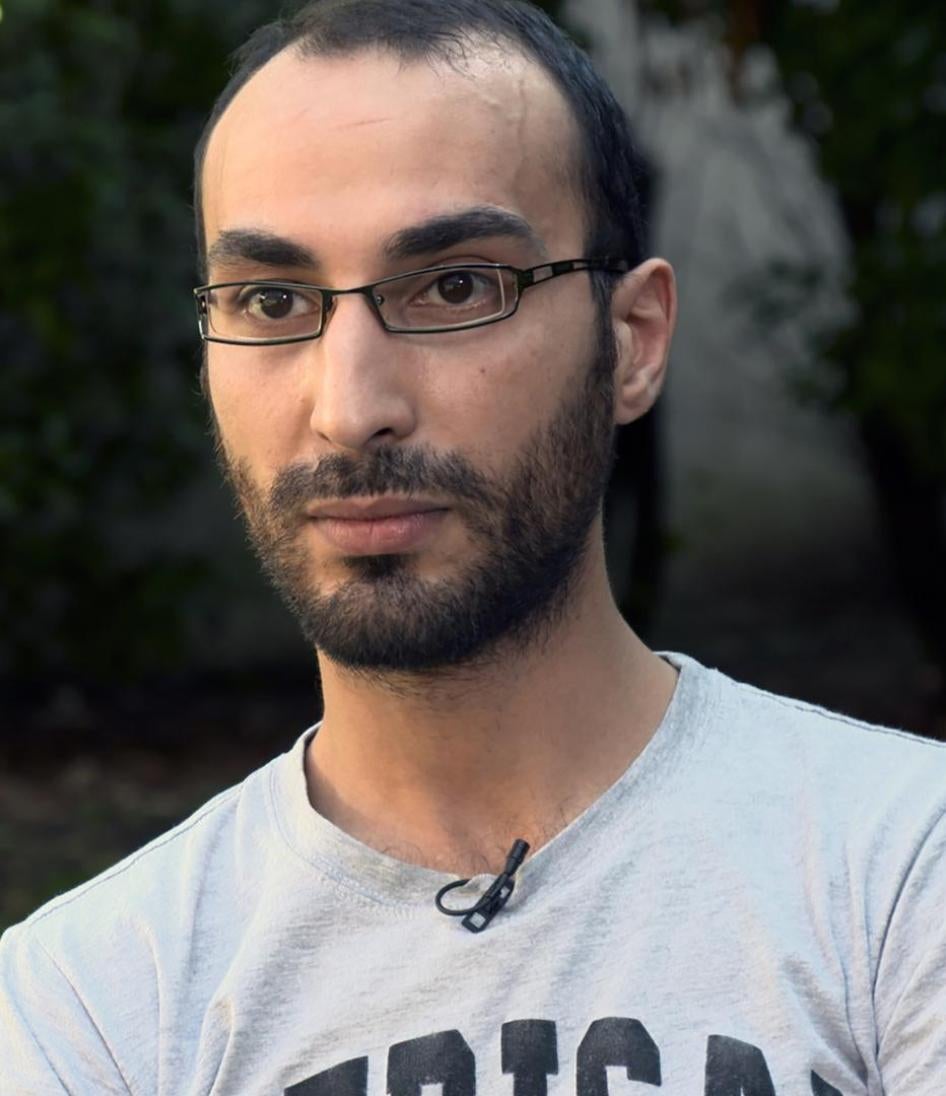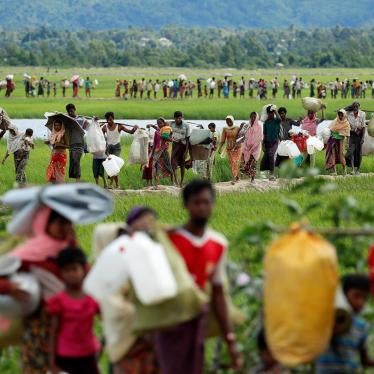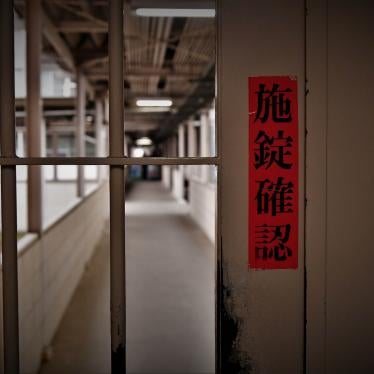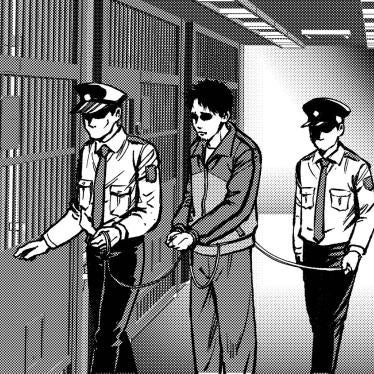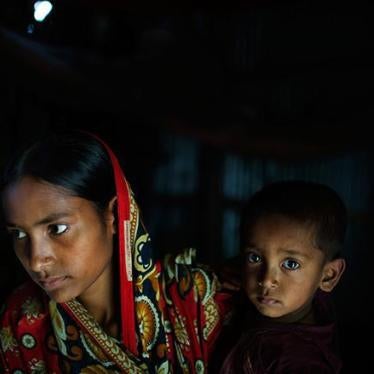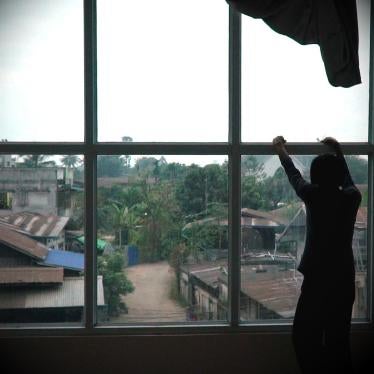Letta Tayler, Senior Researcher, Human Rights Watch:
This is Molenbeek, a neighborhood of Brussels. Many perpetrators of the deadly attacks in Paris in 2015 and in Brussels in 2016 came from here. Since those attacks, the Belgium government has enacted a raft of new counterterrorism laws and regulations The police have carried out hundreds of raids.. Several of those targeted told us that the police had abused them or harassed them during these operations.
Fayçal Cheffou, Detained by police:
It’s me who was terrorized by the police. In fact, they call us terrorists, there’s no evidence, nothing. But here, the police are terrorizing me!
Letta Tayler, Senior Researcher, Human Rights Watch:
The vast majority of the people targeted in these police counterterrorism operations are Muslims or people of North African or Turkish heritage.
Haji El Hajjaji, Vice president, Collective against Islamophobia in Belgium (CCIB):
We see very clearly that these populations are being targeted and as soon as the encounter does not go well the police believe they are in the position to use force against these people.
Letta Tayler, Senior Researcher, Human Rights Watch:
The Belgian authorities told us they are investigating “a number of” allegations of “verbal or physical violence” by the police since the Paris and Brussels attacks. They said that any abusive acts by the police are, quote, “isolated incidents and by no means the result of a deliberate policy.” However some federal police we’ve spoken with, including three who are Muslim, told us they see a pattern of abuse and discrimination against minorities.
“Omar”: Detained by police
Q: While they [the police] were beating you were they asking questions?
No, they were insulting me.
Q: What kind of insults?
Well, “Dirty Arab,” “Terrorist,” “You get what you deserve.”
Zouzou Ben Chikha, Harassed by police
It was raining. That’s the worst part. That’s why it was so humiliating. The ground was wet, and at first I had to take my shoes off. I[LT1] was in my socks in the rain. // They took my backpack and opened it. They looked inside. They were very rude[LT2] .// And there was one of them [the police] who took the biscuits I had in my pocket, he threw them at me and said, “Take your shit with you.”And that was it. They left me there.
“Omar”, Detained by policeI did not see who hit me because I was handcuffed and against a wall. So they hit me from behind. I had bumps, bruises on my arms. I I yelled to ask why I was arrested, the reason. I have the right to know why I got arrested. No one ever answered.[LT3]
Letta Tayler, Senior Researcher, Human Rights Watch:
Hours later the police accused “Omar” of being a terrorist. But then they released him without charge. Fayçal Cheffou was mistaken as the fugitive attacker in the Brussels airport bombing. The media dubbed this fugitive “the man in the hat.”
Fayçal Cheffou, Detained by police
There was blood all over the cell, my blood. And I did not get medical care. So I stayed there completely naked, all night long. I was in a corner, naked, without a blanket, without a pillow, without a mattress. Just waiting. [LT4]
Letta Tayler, Senior Researcher, Human Rights Watch:
One of Belgium’s new directives imposes solitary confinement on prisoners detained on terrorism-related charges, even if they are not yet convicted of a crime. The Belgian authorities have placed about three dozen prisoners in isolation for up to 23 hours a day as a result of this policy.
Nicolas Cohen, Lawyer for terrorism suspects.
We know that solitary confinement can be inhumane and degrading treatment. It’s very serious. It can border on torture to keep someone in isolation. Here are notes from a psychiatrist after 7-8 months of solitary confinement. The detainee explains talking to walls, talking to the cabinet to ease his aimlessness, his solitude. He says he has no motivation, no desire. His sleep is very disturbed by amongst other things, inspections at night, the noise of the door slot “clack-clack” that opens and closes. The light that comes on. But also the nightmares.
Letta Tayler, Senior Researcher, Human Rights Watch:
The Belgium authorities have a responsibility to ensure public safety and to do what they can to protect people from attacks like those in Paris and Brussels. But security measures should be carried out in ways that respect human rights and rule of law.
Zouzou Ben Chikha, Harassed by police
I have nothing against police interventions, if there are done in a normal way, in a polite way, as they would talk to everyone. The problem is that there is a kind of hatred that’s beginning to emerge and that’s not good.
Letta Tayler, Senior Researcher, Human Rights Watch:
After Cheffou was released, the authorities found and arrested a man who reportedly had confessed to being the real man with the hat. Even so, the police have not yet dropped the criminal charges against Cheffou in this case.
Fayçal Cheffou, Detained by police:
Now when you type my name into Google it says “terrorist.” I’m trying to rebuild myself. The police destroyed me. They come in, and in an evening, Boom! They destroy a person’s life. It’s easy.
